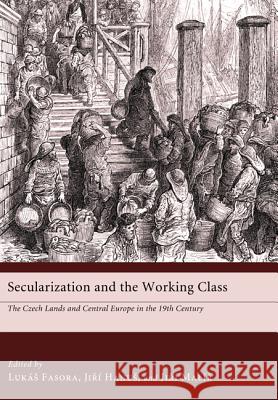Secularization and the Working Class » książka
Secularization and the Working Class
ISBN-13: 9781610970143 / Angielski / Miękka / 2011 / 258 str.
Secularization and the Working Class
ISBN-13: 9781610970143 / Angielski / Miękka / 2011 / 258 str.
(netto: 138,99 VAT: 5%)
Najniższa cena z 30 dni: 144,34
ok. 16-18 dni roboczych.
Darmowa dostawa!
Secularization and the Working Class brings together contributions from thirteen Central European historians who have taken a long-term interest in the issue of the secularization of modern society and social issues affecting the working class. By using contemporary historical methods they have researched the theoretical aspects of secularization theories as well as individual cases which illustrate Czech developments within the framework of the Austrian monarchy. These cases touch upon working conditions, working-class organizations and political parties, cultural life and means of communication. Among other things they present the conflicts that led to rifts within society. This representative collection of texts is will appeal to historians of modern history interested in the fascinating issues of European development, all those who are interested in the living conditions of the working class in the 19th and 20th centuries. ""This book represents a treasure for all those who are interested in the secularization debate, as well as in the fate of religion in Europe under the Communist dictatorship. It explores the terrain of nineteenth- and twentieth-century Central Europe, demonstrating the historical, social, cultural, and spiritual dimensions of the alienation of the working class from the churches and tracks the process of its identification with Marxism long before the Communist takeover.""-Ivana NobleCharles University, Prague""The Czech Republic has one of the worlds highest percentages of people with no religion. These well-researched and often thought-provoking essays lay bare the deep historical roots of Czech secularity. They also re-open the important, but long dormant, debate about the connections between secularization and social class, and especially the working class.""-Hugh McLeodUniversity of Birmingham, UKLukas Fasora, History Department, Faculty of Arts, Masaryk University, specializes in the social history of the Czech lands in the 19th and 20th centuries, particularly the themes of civic society within the framework of municipal authorities.Jiri Hanus, History Department, Faculty of Arts, Masaryk University, Centre for the Study of Democracy and Culture, specializes in the religious history of the 19th and 20th centuries.Jiri Malir, History Department, Faculty of Arts, Masaryk University, fields of interest include political history, particularly the history of political parties and the history of society and Czech-German relations in the 19th century.











